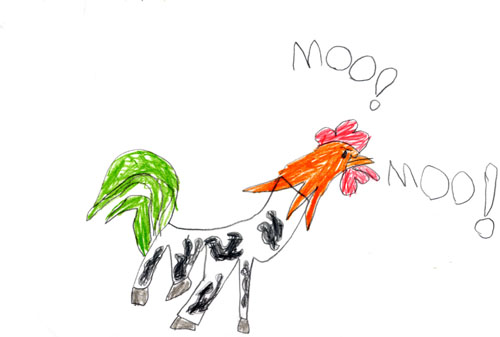Younger offspring offers a way to distinguish dreaming from conscious experience:
I thought I was really awake, so I reached up to touch a cloud, but instead of feeling fuzzy like a cloud would feel, it was like touching an empty space. So that’s how you can tell if you’re dreaming, if you touch the clouds and they feel like empty space.
The child hasn’t read Descartes yet, but we’ve got all summer.

